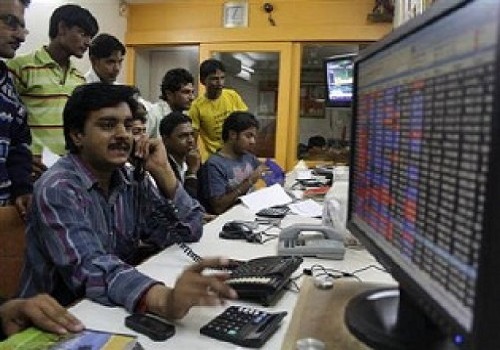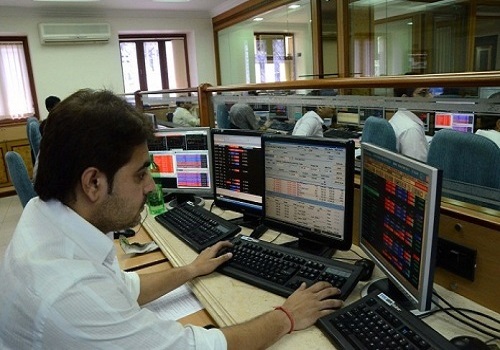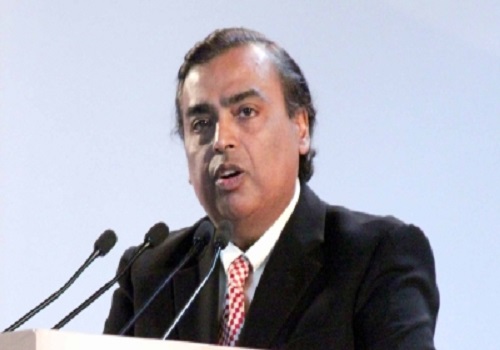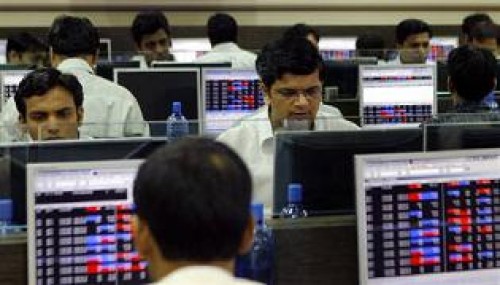Opening Bell : Markets likely to get positive start tracking gains in global markets

Follow us Now on Telegram ! Get daily 10 - 12 important updates on Business, Finance and Investment. Join our Telegram Channel
Indian markets, in yet another volatile session, ended higher and extended the winning run for the third consecutive session on Thursday. Today, markets are likely to get positive start tracking gains in global markets. Traders will be taking encouragement as the government data showed India's exports rose to a three-month high of 3.12 per cent to $36.92 billion in January despite global uncertainties including the Red Sea crisis, while the trade deficit narrowed to a nine-month low of $17.49 billion. After recording negative growth for two months in a row, imports grew by about 3 per cent to $54.41 billion in January. The previous low in trade deficit -- the difference between imports and exports -- was recorded in April 2023 at $15.24 billion. In January 2023, it was $17.03 billion. Traders may take note of a report by the Centre for Economics and Business Research (CEBR) stating that it has been a remarkable year for equities with the Nifty 50 rallying 22 percent in 2023 and the Sensex gaining 20 percent in the same period. Besides, India is currently a $3.7 trillion economy and is expected to grow to about $6 trillion by 2030 and $10 trillion by 2035. It also said as the Indian economy is poised for strong growth, and companies grow in size and scale, there is optimism that the capital markets will continue to boom over the next few years. However, foreign fund outflows likely to dent sentiments. Foreign institutional investors (FIIs) net sold shares worth Rs 3,064.15 crore on February 15, provisional data from the NSE showed. Banking stocks will be in focus as S&P Global Ratings said challenges in mobilising deposits to meet loan demand may hit bank credit growth in India in the next financial year (FY25). It added credit growth may slip to 14 per cent year-on-year (YoY) in FY25 compared to 16 per cent till December 2023. There will be some reaction in oil & gas sector stocks as the government revised its windfall gains tax on crude petroleum with effect from February 15. As per the revisions, Special Additional Excise Duty (SAED) on crude petroleum will increase to Rs 3,300 per tonne, from Rs 3,200 per tonne earlier; while tax on diesel will increase to Rs 1.50 a litre from zero. Further, SAED on petrol and aviation turbine fuel (ATF) will continue to be nil. Microfinance institutions stocks will be in limelight as a report noted that the listed microfinance institutions (MFIs) and MFI subsidiaries of the listed finance companies posted 80 per cent year on year (Y-o-Y) growth in net profit at Rs 1,105 crore in the December quarter of the current financial year (FY24). It also said the buoyant interest income of 51.88 per cent Y-o-Y and credit offtake helped non-banking finance companies (NBFCs)-MFIs report a healthy bottom line. Meanwhile, Entero Healthcare Solutions will make its market debut.
The US markets ended higher on Thursday as retail sales data declined more than expected, feeding hopes the Federal Reserve will soon start cutting interest rates in coming months. Asian markets are trading mostly in green on Friday following the positive trend on Wall Street, despite the worse-than-expected U.S. retail sales data.
Back home, rising for the third consecutive day, Indian equity benchmarks closed Thursday's volatile session in the positive territory, led by gains in PSU, Oil & Gas and Utilities stocks amid a rebound in global peers. Markets made a positive start but soon turned volatile as traders were cautious with the provisional data from the NSE showing that foreign institutional investors (FIIs) net sold shares worth Rs 3,929.60 crore on February 14. Some concern also came as the Reserve Bank of India (RBI) Governor, Shaktikanta Das stated that there is no scope for any complacency and banks should continue to maintain their vigil around build-up of risks, if any. In the meeting with banks’ MDs & CEOs, Das highlighted the issues relating to Business Model viability; outlier growth in personal loans; adherence to co-lending guidelines; Bank exposure to NBFC sector; Liquidity Risk Management; IT and Cyber security preparedness, operational resilience, digital frauds; and strengthening of the internal rating framework. However, markets managed to keep their heads above water in afternoon deals, as traders took support with the Reserve Bank of India (RBI) data stating that India’s services trade surplus shot up to a record $44.9 billion in the October-December quarter (third quarter, or Q3) of 2023-24 (FY24), growing 16 per cent year-on-year, showing resilience amid strong global headwinds. This is likely to reduce the current account deficit (CAD) in Q3. Markets added gains in late afternoon deals, taking support from a private report stating that India's merchandise trade deficit narrowed to $17.49 billion in January as exports edged up by 3.1 percent year-on-year despite the ongoing crisis in the Red Sea disrupting trade as commercial vessels traversing through the Suez Canal face attacks from Yemen-backed Houthi rebels. The merchandise trade deficit stood at $19.80 billion in December 2023. Meanwhile, Finance Minister Nirmala Sitharaman is scheduled to review the state of the economy amid global challenges at a meeting of the Financial Stability and Development Council (FSDC) on February 21. This would be the first meeting of the FSDC after the passage of the Rs 47.6 lakh crore Budget for 2024-25, focusing on capital expenditure with an outlay of Rs 11.11 lakh crore. Finally, the BSE Sensex rose 227.55 points or 0.32% to 72,050.38 and the CNX Nifty was up by 70.70 points or 0.32% to 21,910.75.
Above views are of the author and not of the website kindly read disclaimer










Tag News

Market Outlook: US bond yields, dollar index, FII data key triggers for next week





 320-x-100_uti_gold.jpg" alt="Advertisement">
320-x-100_uti_gold.jpg" alt="Advertisement">








